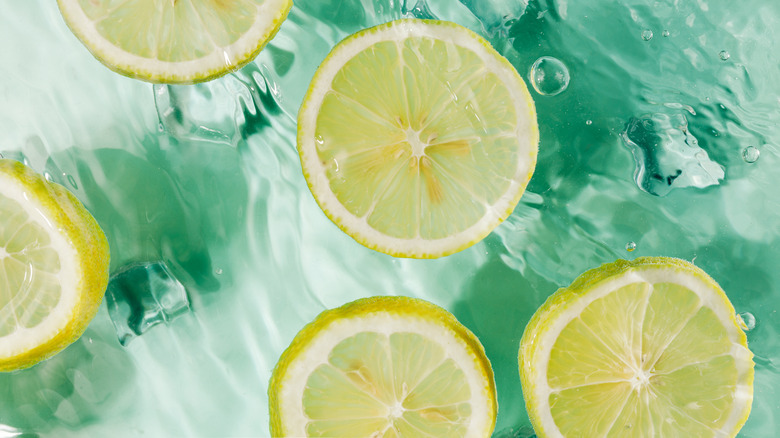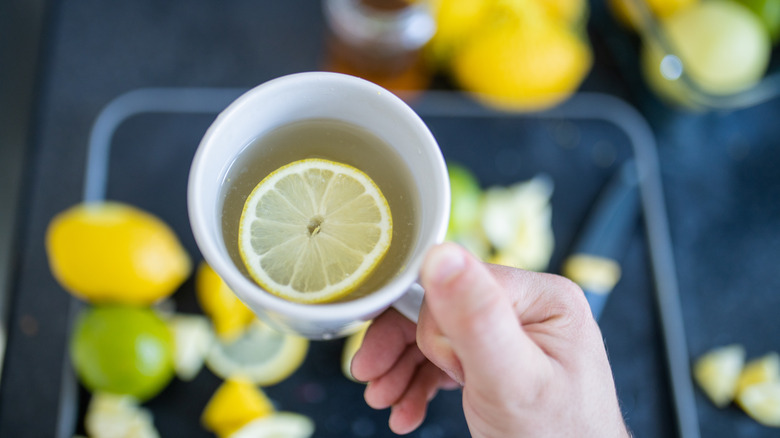The Real Reason Lemons Float In Water
Lemons and limes may both be from the citrus family, but they each have a distinct flavor that distinguishes one from the other. As Diffen.com explains, both may be acidic, however, lemons tend to be sour while limes have more of a bitter taste. This is especially true when adding them to our favorite beverages. Per Espirito Cachaca, limes are an essential ingredient in mojitos, margaritas, and gimlets, while lemons tend to grace summer sangria, cool glasses of iced tea, or Diet Cokes. But there's another difference between these two fruits that you may have noticed.
When you toss them into a liquid to get a burst of lemon or lime tang, the lemon floats and pops back up to the top of your drink while the lime sinks to the bottom. Why does this happen? The folks at Best Food Facts took note of this occurrence and decided to do a little hands-on research to figure out what magic the lemon holds that the lime doesn't. Believe it or not, there is a good reason this transpires, and if you were paying attention in high school chemistry, you are going to be nodding your head along as you read why.
It's all about density
Steve Spangler Science reveals that many people believe it's something about the rinds, since lemon rinds tend to be thicker than lime rinds. Could this make the lemon more buoyant? Spangler says it's a little more complicated and instead suggests that we need to turn our attention to the water content of each fruit. A lime, by weight, is 88.26%, while a lemon is 87.4% water. Best Food Facts notes that while these figures seem quite close, there's a world of difference between them.
Apparently, it all comes down to density. Steve Spangler Science found a lime and lemon that weighed the exact same amount and placed them in water to determine each fruit's volume. Using the formula D=M/V, where D = density, M = mass, and V = volume, they were able to conclude that the density of a lemon is equivalent to that of water, which allows the lemon to float. Both Spangler and Best Food Facts used water displacement to verify this hypothesis and found that while the lemon's and lime's densities were close, they were, indeed, different. And it is this slight distinction that makes the lemon float. Now, who else is ready for a refreshing sip of something citrusy?

